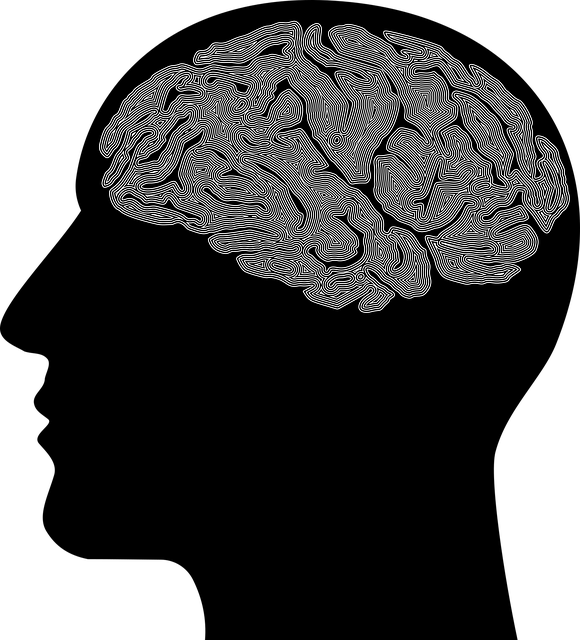Colorado Springs Christian Counseling Therapy (CSCCT) plays a vital role in the multifaceted approach to mental health data collection, providing critical insights into residents' psychological well-being. By analyzing survey responses, therapy sessions, and community outreach programs, CSCCT helps identify local trends in mood management, stress reduction, and public awareness. Data analysis is a cornerstone for personalizing treatment plans, with evidence-based strategies like CBT and mindfulness tailored to individual needs. Through these efforts, CSCCT contributes to enhanced mental health care access, advocates for evidence-based practices, and fosters community wellness, while ethical considerations guide future advancements with AI-driven tools and digital platforms.
Mental health data analysis is transforming the landscape of counseling therapy, especially within communities like Colorado Springs. This article explores the intricate process of understanding, analyzing, and interpreting mental health data, focusing on its application in Colorado Springs Christian Counseling Therapy. We delve into data collection sources, advanced analytical techniques, and their impact on personalized treatment plans. Additionally, we discuss ethical considerations and future trends shaping this dynamic field.
- Understanding Mental Health Data: Collection and Sources in Colorado Springs
- Analyzing the Data: Techniques and Tools for Christian Counseling Therapy
- Interpreting Findings: Insights for Personalized Treatment Plans
- Ethical Considerations and Future Trends in Mental Health Data Analysis
Understanding Mental Health Data: Collection and Sources in Colorado Springs

In Colorado Springs, understanding mental health data involves recognizing the diverse sources and methods of collection. The city hosts a variety of organizations, including Colorado Springs Christian Counseling Therapy, that contribute to data through therapy sessions, surveys, and community outreach programs. These entities play a crucial role in gathering insights into the psychological well-being of residents, offering valuable information for analysis.
The data collected often reflects local trends in mood management, stress management workshops, and public awareness campaigns development. By studying these metrics, mental health professionals can identify areas of concern and design targeted interventions. Moreover, understanding the sources enriches the interpretation process, enabling more effective strategies to be developed, tailored to the unique needs of Colorado Springs’ community.
Analyzing the Data: Techniques and Tools for Christian Counseling Therapy

In the realm of Colorado Springs Christian Counseling Therapy, data analysis plays a pivotal role in understanding client needs and tailoring effective treatment plans. Therapists employ various techniques to interpret mental health data, ensuring accurate diagnoses and personalized care. One common approach involves utilizing advanced statistical software to analyze survey responses, session notes, and assessment tools. These tools help identify patterns and trends within the client population, revealing common challenges such as anxiety, depression, or trauma.
Moreover, integrating Mental Wellness Coaching Programs Development and Risk Management Planning for Mental Health Professionals enhances this process. Therapists can design interventions based on data insights, focusing on strategies like mindfulness practices, cognitive behavioral therapy (CBT), and stress management techniques. Effective stress management, a key component in many mental health plans, can be tailored to individual needs through data-driven methods. This ensures that each client receives the most suitable care, promoting their overall mental wellness.
Interpreting Findings: Insights for Personalized Treatment Plans

When analyzing mental health data from clients like those seeking Colorado Springs Christian Counseling Therapy, therapists can uncover profound insights to inform personalized treatment plans. By interpreting trends and patterns within the data, professionals gain a clearer understanding of what works best for different individuals. This knowledge is invaluable in tailoring interventions, ensuring that coping skills development and risk management planning are aligned with each client’s unique needs. For instance, analysis might reveal that certain therapeutic techniques or support groups significantly improve outcomes for specific demographics or those facing particular challenges.
This tailored approach not only enhances the effectiveness of treatment but also fosters better patient engagement. Therapists can use these insights to create more meaningful connections with their clients, making therapy a more effective and positive experience. Moreover, by understanding what works, mental health professionals can advocate for evidence-based practices, contribute to the development of public awareness campaigns, and ultimately improve access to quality care for those in need, whether they seek counseling in Colorado Springs or beyond.
Ethical Considerations and Future Trends in Mental Health Data Analysis

As mental health data analysis advances, ethical considerations become increasingly vital. With the rise of digital therapy platforms and extensive data collection in Colorado Springs Christian Counseling Therapy, ensuring client privacy and consent is paramount. The intricate nature of personal mental health information demands robust security measures to prevent unauthorized access or misuse. Additionally, researchers and therapists must maintain transparency about data collection methods and purposes, fostering trust among clients.
Looking ahead, the future of mental health data analysis holds promising trends. AI-driven tools can potentially personalize treatment plans based on individual patterns, enhancing efficacy. Integration of self-care routine development for better mental health through digital platforms could improve patient outcomes. Conflict resolution techniques, historically challenging to teach at scale, might benefit from data analytics, making them more accessible and effective. These innovations, coupled with heightened ethical standards, can significantly contribute to the field, improving Mental Health Awareness and access to quality care in Colorado Springs Christian Counseling Therapy settings and beyond.
Mental health data analysis plays a pivotal role in enhancing the effectiveness of counseling therapies, especially within the context of Colorado Springs Christian Counseling Therapy. By understanding diverse data sources and employing sophisticated techniques, therapists can gain profound insights into client populations. This enables them to tailor treatment plans that cater to individual needs, ultimately improving outcomes. As technology advances, ethical considerations remain paramount, shaping the future of mental health data analysis and its potential to revolutionize personalized care in Colorado Springs and beyond.














